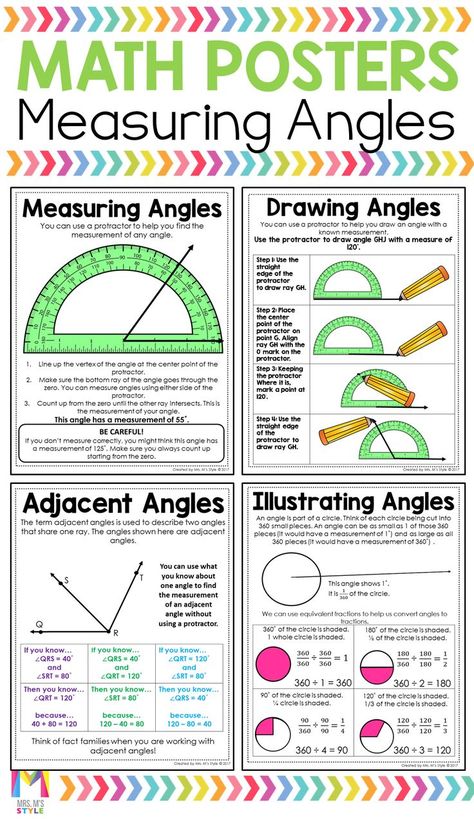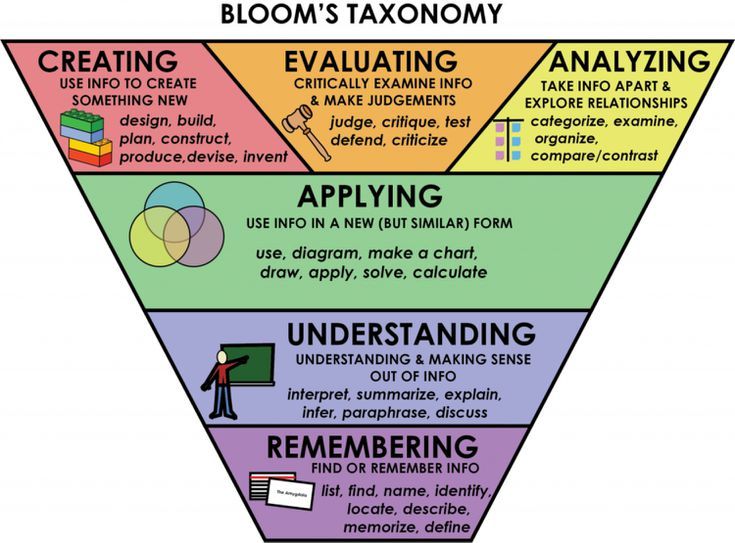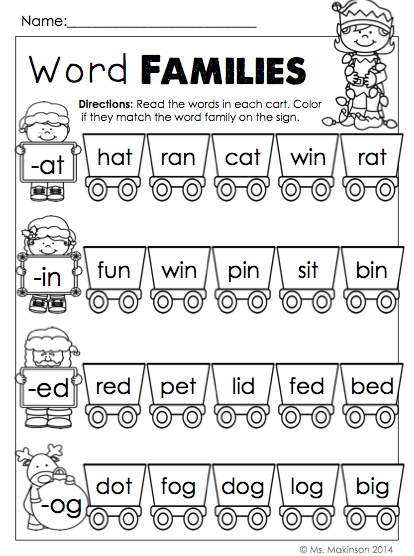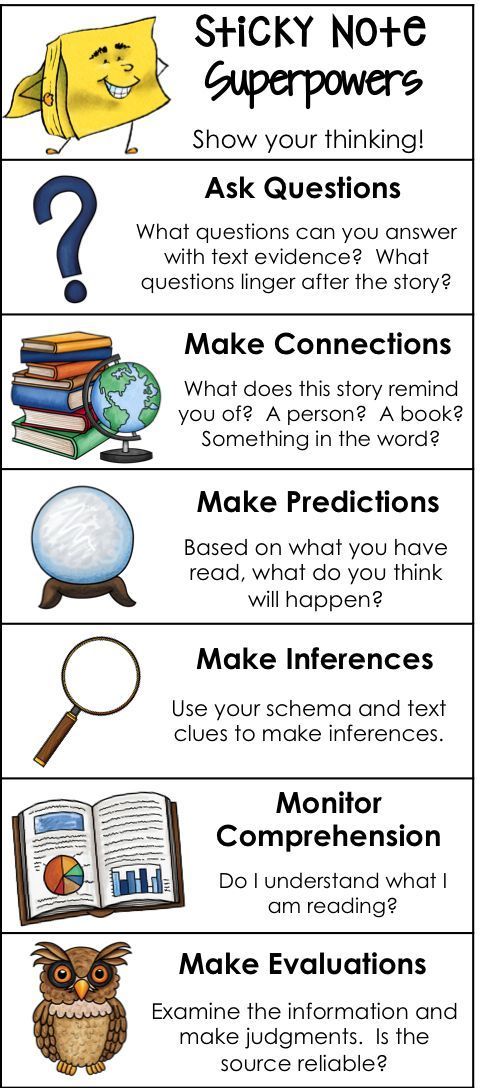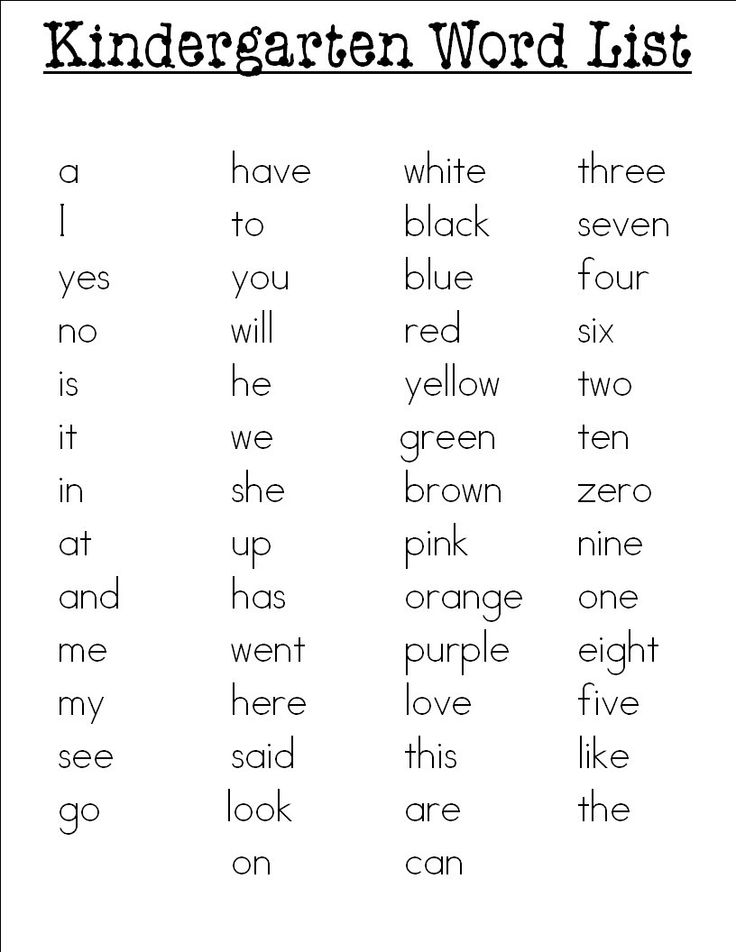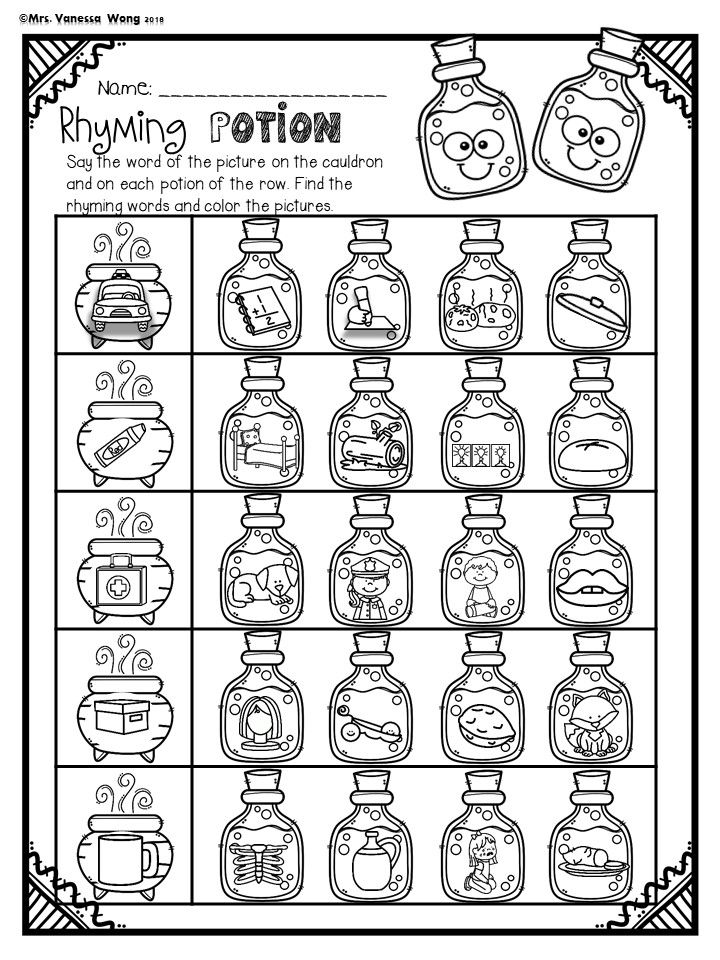Fundamental math skills
What are the basic arithmetic skills?
Arithmetic is known to be the basic part of number theory and an important part of mathematics for mathematical calculations. The basics of all the complex calculations that involve maths whether in physics, chemistry, maths, etc. involve arithmetic. Arithmetics plays an essential role in modern mathematics and the basic arithmetic skills are taught from a very young age to students in order to help them understand the concepts deeply. Let’s see what the basic arithmetic skills are,
Basic Math
Basic math skills include the ability to calculate quantities, sizes, and other measures. All of these skills are required to do precise and efficient numerical calculations. It is known that simple math is needed abilities to conduct simple calculations using numbers, values, quantities, or any other measures.
What are the basic arithmetic skills?
Addition, subtraction, multiplication, and division are the four basic arithmetic skills. Fractions, decimals, percentages, fractions, square root, exponents, and other arithmetic operations are used to achieve mathematical simplifications. All of these abilities are required to do precise and efficient numerical calculations. Lets go through each of these in-depth and use examples to help us grasp them.
Addition
It is a skill that allows you to connect, merge, or add two or more numbers. It’s also known as the total or sum. The sign “+” is used to represent it.
Example:
To determine the total of 4, 41, 64, utilize this skill and express it as,
4 + 41 + 64 = 109.
Subtraction
This skill is used to show the difference between two numbers or to subtract specific numbers from a larger number. The addition is the polar opposite of subtraction. The symbol “-” is used to represent it.
Example:
To determine the difference between 64 and 32, utilize this skill and express it as,
64 – 32 = 32.
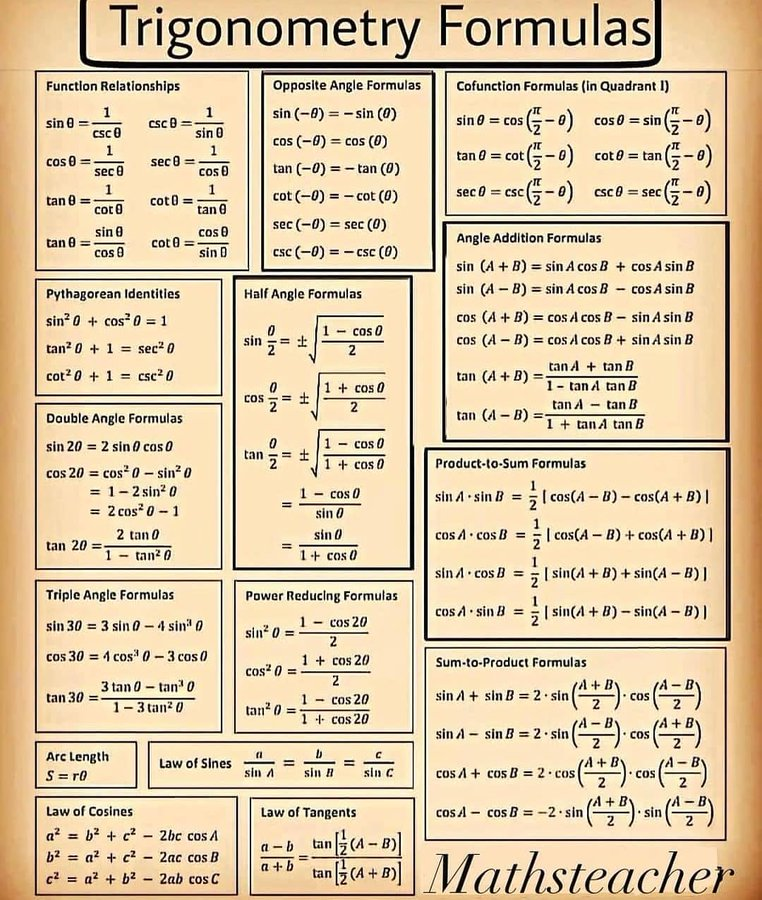
Multiplication
This skill is used to repeatedly add a number to itself. It’s also known as multiply or times, and it’s represented by the sign “×”.
Example:
To add 7 four times, 7 + 7 + 7 + 7 = 28, utilize this skill and find the answer by doing
7 × 4 = 28.
Division
This skill permits us to split or share a number into pieces. It’s the polar opposite of multiplication. The symbol “÷” is commonly used to represent it.
Example:
To determine how 64 is equally distributed in 8 parts, utilize this skill and express it as,
64 ÷ 8 = 8.
Sample Problems
Question 1: There are 24 students in a class, 5 new students join them. What is the total number of students in class?
Answer:
The total number of students will be 24 + 5 = 29. As a result, the total is 29.
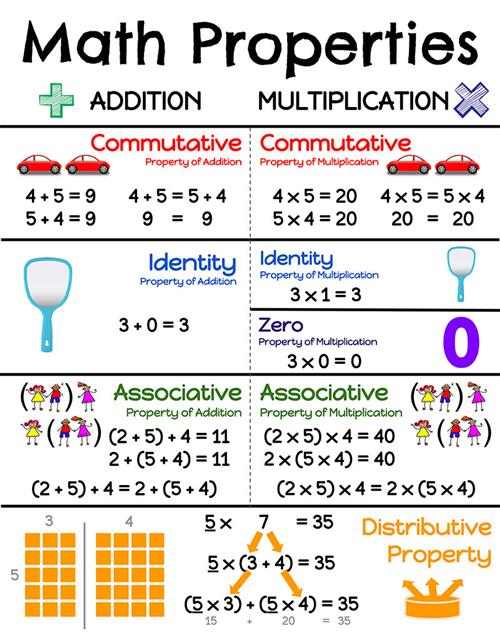
Question 2: How many people are remaining at a party if there are 60 individuals in it and 33 of them leave?
Answer:
To get the remaining persons, subtract the number of people who have left from the total, which is 60 – 33 = 37. As a result, there are 37 individuals remaining at the party.
Question 3: Somebody has 20 notes of 10 Rupees, what is the total amount with him?
Answer:
To find the total amount, 20 x 10 = 200. He has a total of 200 Rupees.
Question 4: How could we distribute 35 mangoes equally to 5 individuals?
Answer:
Divide 35 by 7 as 35 ÷ 5 =7. As a result, 35 have been distributed evenly among 5 individuals, who will each receive 7 7 pieces.
Question 5: A soccer squad competed in 16 games, losing 6 of them. What was the total number of games it won?
Answer:
To get the number of wins, 16 – 6 = 10.
The team won 10 games.
Math Skills Needed for Different Math Subjects
Geometry. Algebra. Statistics. Different types of math require different skills. That’s why a child might do well in one math class but not another.
Here are the types of skills used in different math subjects.
Type of math | Skills involved | Who might struggle |
|---|---|---|
| Arithmetic |
| Kids who struggle with number sense and concepts such as greater than/less than might have a hard time with arithmetic. |
| Algebra |
| Kids who get confused by symbols and variables. And kids who have trouble with handwriting may make errors that lead to mistakes in multi-step algorithms. Kids who have trouble understanding things visually may reverse numbers. This can make it hard to write and solve equations. |
| Geometry |
| Kids with language difficulties may struggle with the tricky math vocabulary in geometry. Kids with visual-spatial difficulties may have trouble with the highly visual nature of geometry, like working with shapes and estimating measurements. |
| Precalculus/Calculus |
| Kids who have trouble with algebra often struggle with calculus, too. Calculus can also be hard for kids who struggle with abstract thinking, like figuring out which formula could best solve a problem. But kids who enjoy solving problems in a methodical, organized way might do really well with calculus. That’s because calculus is often taught using a step-by-step approach. |
| Statistics |
| Statistics is especially tough for kids who struggle with fractions and percentages and with comparing values. It’s also tough for kids who have a hard time organizing, planning, and prioritizing. But some kids who struggle with focus might be more engaged and motivated in a statistics class than in other math classes. That’s because statistics is more connected to real-world situations. |
| Trigonometry |
| Kids who struggle to make sense of diagrams. It can also be tough for kids who have trouble remembering the many properties and big vocabulary of trigonometry. But kids who like a step-by-step approach might really enjoy trigonometry. They may have an easier time seeing similarities from one problem to the next. |
Find out why kids might struggle with math. You can also download free graphic organizers to help with math.
Fundamental mathematics is the key to wealth and prosperity
Study Abroad: SpecializationsThe Benefits of Education in Fundamental Mathematics and the Best Universities to Study Mathematics Abroad
According to statistics, today such areas as finance, economics, business and accounting are popular among students all over the world.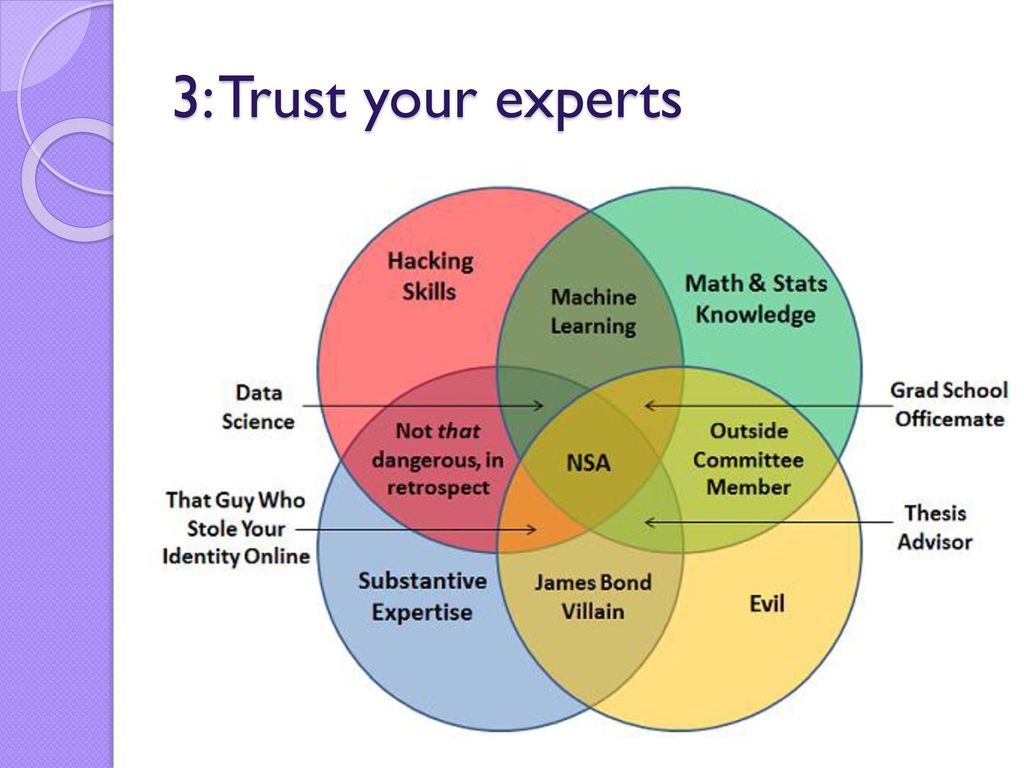 It is not surprising, because education in these areas promises interesting work, high social status and a good salary.
It is not surprising, because education in these areas promises interesting work, high social status and a good salary.
However, long before the emergence of all these disciplines, there was mathematics - a fundamental science that in many ways laid the foundation for such popular subjects today. And if you think that mathematics education has long lost its prestige, you are greatly mistaken. Any expert will tell you that a quality education in mathematics abroad opens up excellent prospects for students, which even graduates of fashionable business schools will envy!
“Now everyone is concerned about business education in all its manifestations – marketing, management, etc. But few achieve real success. At the same time, I do not know a single loser who would have graduated from the mathematical faculty (with the exception of those who went to teach at school) and did not earn a lot of money. They know the fundamental laws of numbers, have a good understanding of the theory of probability and games.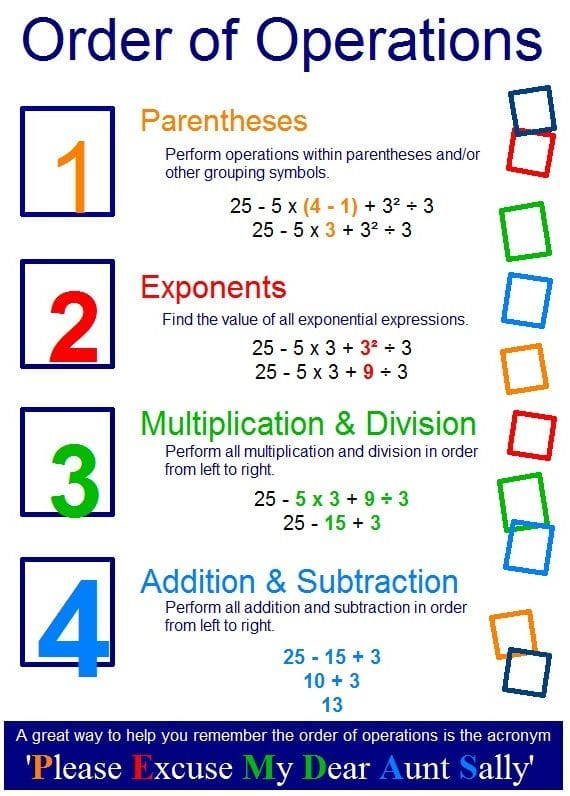 They run such tricks with numbers in their heads that it is almost impossible to deceive them. If theoretical mathematicians go into business, it always turns out to be a cool business. Because business is always numbers, and numbers are their profession. Business is about making decisions under conditions of uncertainty. And uncertainty is calculated through the laws and tricks of probability theory. I don't know how, but businessmen with a fundamental mathematical education have no problems with sales, marketing, or deliveries. Even with employees - no problem. Probably, functions and equations somehow fall on relations with the staff, too, ”this is how modern mathematicians in their blog writes financial director Inna Martynova, and we completely agree with her.
They run such tricks with numbers in their heads that it is almost impossible to deceive them. If theoretical mathematicians go into business, it always turns out to be a cool business. Because business is always numbers, and numbers are their profession. Business is about making decisions under conditions of uncertainty. And uncertainty is calculated through the laws and tricks of probability theory. I don't know how, but businessmen with a fundamental mathematical education have no problems with sales, marketing, or deliveries. Even with employees - no problem. Probably, functions and equations somehow fall on relations with the staff, too, ”this is how modern mathematicians in their blog writes financial director Inna Martynova, and we completely agree with her.
So, let's see why it is worth getting a mathematical education abroad and, most importantly, where to do it?
Why choose a mathematics education?
Mathematics is one of the most versatile and widely applicable sciences, which is not only very interesting to study, but also useful.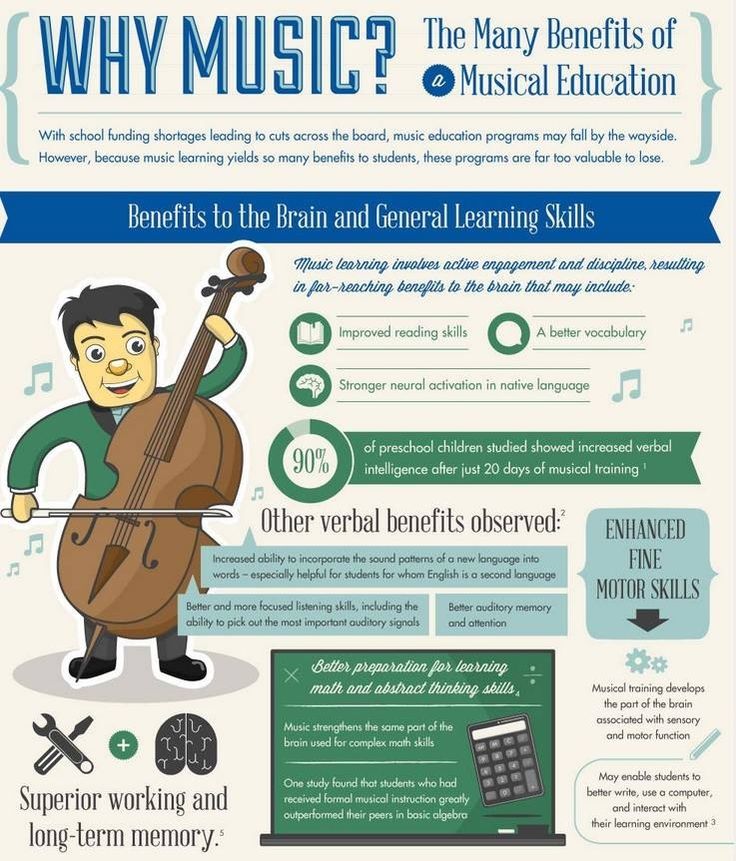 Here are some reasons why students choose a math education…
Here are some reasons why students choose a math education…
Mathematics is always and everywhere needed
Look at the world around. Many of the most significant achievements of our civilization are completely dependent on mathematics. From air-flying airplanes to drug manufacturing and even the operation of your computer, none of this would be possible without the use and study of numbers. In a word, mathematics is inseparable from our life, and therefore mathematicians can be safely called one of the most important and necessary people on the planet.
Wide choice and variety of study programs
Foreign universities offer a truly wide range of study programs in the field of mathematics. And we are talking not only about numerical mathematical programs, which are used by future mathematicians and teachers. Mathematics is one of those subjects that are increasingly being offered in dual major programs. For example, you can combine the study of mathematics with the study of subjects such as business, management, pharmaceuticals, engineering, architecture, the humanities, and even foreign languages.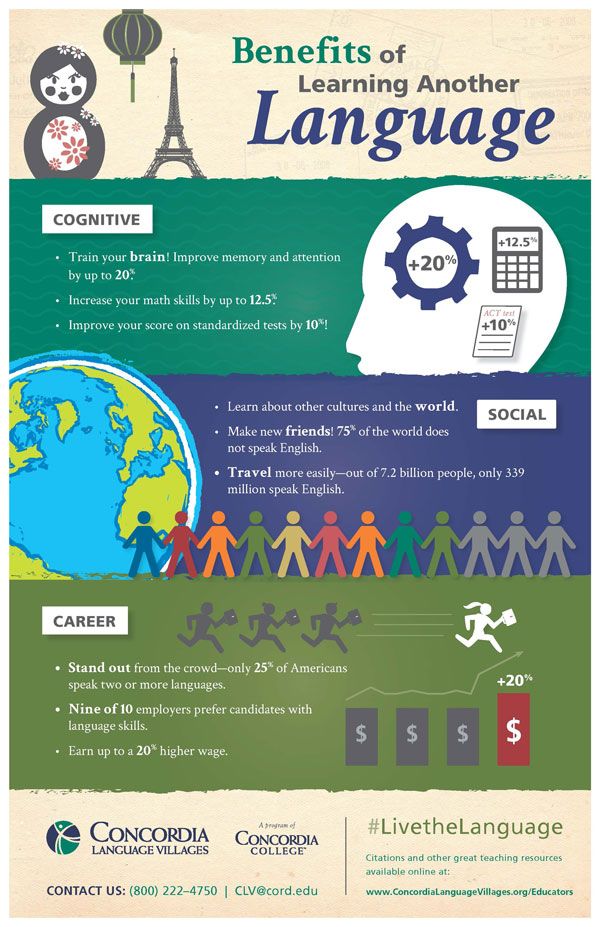
Alumni prospects
For many students, a mathematical education is a path to stability and confidence in the future. Graduates of mathematical faculties are in demand and receive a decent salary, especially if they studied at a prestigious university. This is largely determined by the fact that mathematical education is very universal. Some mathematicians devote their lives to science and teaching, others work for public and private companies in fields ranging from engineering to medicine, and still others go into business.
Development of the most demanded skills
Continuing the theme of the universality of mathematics education, it is worth mentioning that students of mathematics programs maximize the development of useful skills that can be applied in various fields. For example, the skills of rational and logical thinking. In modern conditions, they are very important for employment and productive work in many industries. Equally important is the understanding of complex mathematical theories and rules.
Equally important is the understanding of complex mathematical theories and rules.
High wages
Qualified mathematicians invariably expect high wages. And this also applies to graduates who do not become entrepreneurs and do not open their own enterprises. The versatility of mathematical skills opens up not only a variety of employment opportunities for graduates, but also opportunities for career growth and good earnings. According to data PayScale . com , the median salary for holders of a bachelor of science degree in mathematics in the US is $74,000 per year, and the median salary for masters graduates is as high as $80,000 per year.
What do future mathematicians study?
Abroad, bachelor's programs in mathematics traditionally last 4 years, master's programs - 1-2 years, depending on the university and specialty.
Among the subjects that future mathematicians usually study are disciplines such as algebra and number theory, geometry and topology, computer science, the culture of mathematical reasoning, mathematical statistics, mathematical analysis, methods of calculation, mathematical logic and set theory, discrete mathematics, calculus of variations and etc.
Thus, the programs teach students to master the basic and special methods of mathematical research in the analysis and solving problems of modern mathematics, as well as conducting scientific work both independently and in a research team. Much attention is also paid to the ability to freely navigate modern methods and algorithms of computer mathematics and use them for various purposes.
Where to study mathematics abroad?
ETH Zurich , Switzerland
Estimated tuition fee: $1,300 per year
ETH Zurich is the only university in continental Europe that is in the top 10 best mathematical universities in the world. The famous Swiss university includes the Department of Mathematics, on the basis of which students from all over the world study and do research. The university offers English-language undergraduate, graduate and doctoral programs in fundamental mathematics, computational science, data science, applied mathematics, statistics and finance.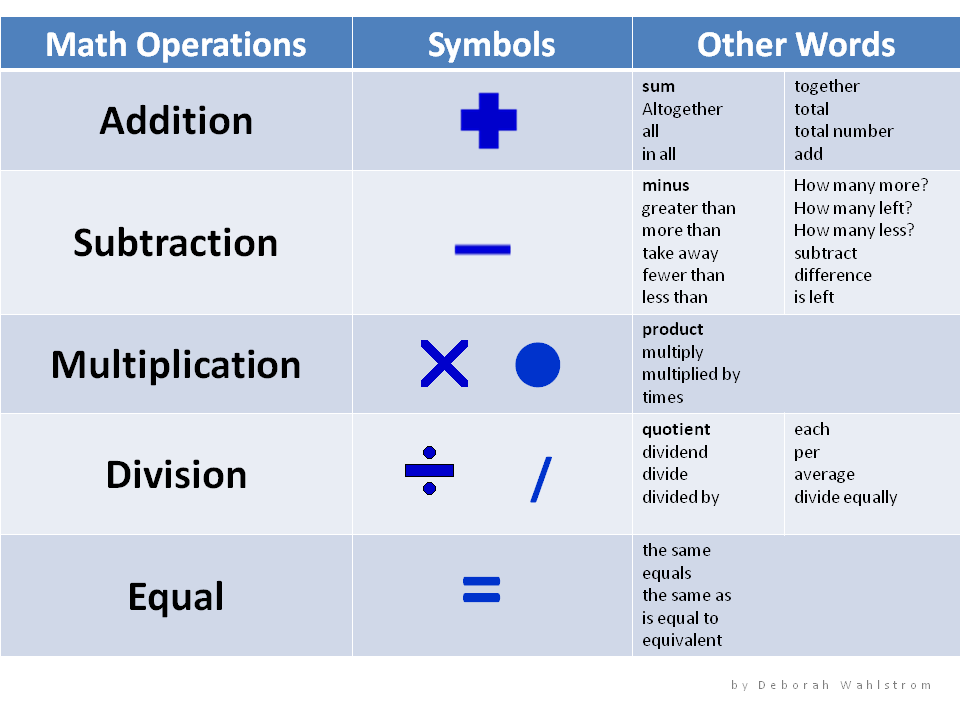 In addition, the department conducts extensive research in the field of algorithms, combinatorics and optimization, applied mathematics, numerical analysis and scientific computing, geometric analysis, mathematical physics, statistics, probability theory and other areas.
In addition, the department conducts extensive research in the field of algorithms, combinatorics and optimization, applied mathematics, numerical analysis and scientific computing, geometric analysis, mathematical physics, statistics, probability theory and other areas.
University of Reading , UK
Estimated tuition: $22,700 per year
The University of Reading is located near London and educates students from more than 140 countries around the world, offering a high-quality education based on the Department of Mathematics and Statistics. The university is distinguished by a wide choice of mathematical programs that allow you to study only fundamental mathematics or combine the study of mathematics with the study of another discipline. Students have access to bachelor's, master's and doctoral programs with a specialization in mathematics or in mathematics and computer science, economics, finance and investment banking, meteorology, psychology or statistics. Thus, the university provides students with the most modern interdisciplinary education and opens up the best employment prospects for them.
Thus, the university provides students with the most modern interdisciplinary education and opens up the best employment prospects for them.
La Trobe University , Australia
Estimated tuition fee: $23,500 per year
As a renowned provider of quality mathematics education, La Trobe University includes a Research and Development Department of Mathematics and Statistics, which is distinguished by a modern approach to the educational process. Here you can get bachelor's, master's and doctoral degrees in mathematics, statistics or computer science. At the same time, theoretical courses occupy no more than 50% of students' study time, they devote the rest of the time to practical and research work. The university is also known for its active support of women students of mathematics and exact sciences. As part of the international support program, students who have chosen STEM education for themselves receive additional assistance, scholarships and grants.
Auckland University of Technology , New Zeeland
Estimated tuition: $20,900 per year
The Department of Mathematics at Auckland University of Technology is one of the largest and most prestigious in New Zealand. The department is known for extensive professional collaboration, so its programs are always up to date, and students are given the opportunity to complete internships with the best employers. The choice of study programs of the department is also wide. It offers degree and certificate programs, undergraduate, graduate and doctoral programs leading to a specialization in mathematics, analytics or applied mathematics. By the way, the study of mathematical sciences at a university can be combined with the study of computer science, engineering, and even astronomy. The university has several research centers, and its graduates become members of such professional communities as Mathematics in Industry New Zealand (MINZ) and the American Mathematical Society.
Universiti Putra Malaysia , Malaysia
Estimated tuition: $3,600 per year
In the field of higher mathematical education, the University of Putra Malaysia has long been a worthy competitor to Western universities. Mathematics education here is not only of high quality, but also affordable. In addition, the university is distinguished by a variety of programs and teaches in English. The university offers undergraduate, graduate and doctoral programs in fundamental mathematics, statistics, applied mathematics, structural mathematics, applied and computational statistics, computational operations, computational methods in engineering, ethnomathematics, mathematical cryptography, numerical analysis, financial mathematics, etc. At the same time, students can receive both academic and research degrees, working in modern laboratories and research centers of the university.
Virginia Tech , USA
Estimated tuition: $26,800 per year
Virginia Tech is a university with a huge campus that offers students a wide range of programs and is one of the top 50 leading universities in the United States.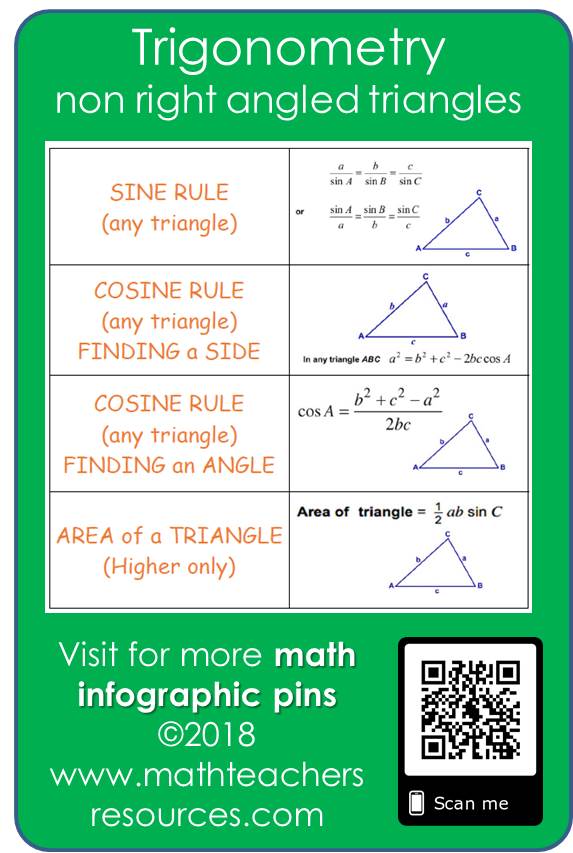 The university has its own Department of Mathematics, on the basis of which degrees are available to students at all academic levels with specializations in mathematics, statistics, operations research, mathematical data analysis and applied statistics. Virginia Tech is also one of the best centers for the preparation of future math teachers. There are separate programs that lead to the degrees M.A.Ed., Ed.S. and PhD in Mathematics Education. At the doctoral level, university students also study the general trends of modern mathematical education and develop new effective methods for studying mathematics.
The university has its own Department of Mathematics, on the basis of which degrees are available to students at all academic levels with specializations in mathematics, statistics, operations research, mathematical data analysis and applied statistics. Virginia Tech is also one of the best centers for the preparation of future math teachers. There are separate programs that lead to the degrees M.A.Ed., Ed.S. and PhD in Mathematics Education. At the doctoral level, university students also study the general trends of modern mathematical education and develop new effective methods for studying mathematics.
University of Waterloo , Canada
Estimated tuition fee: $23,300 per year
Canada's University of Waterloo is ranked among the top 40 universities in the world for studying mathematics and computer science and is one of the most important centers for mathematics education and research in North America. The university includes the renowned Faculty of Mathematics, which offers programs at three levels - undergraduate, graduate and doctoral studies. At these academic levels, students can complete one of the many available mathematics specializations, including specializations in general mathematics, applied mathematics, mathematics in computer science, mathematics in data science, statistics, biostatistics, mathematics in accounting, combinatorics and optimization, computational mathematics, mathematical economics, mathematical optimization, pure mathematics, mathematical physics and other disciplines. Many of the faculty's programs are based entirely on research and cutting-edge innovation. It is worth noting that this is one of the best universities to start a scientific mathematical career. The university allocates more than $17 million annually for research and development!
At these academic levels, students can complete one of the many available mathematics specializations, including specializations in general mathematics, applied mathematics, mathematics in computer science, mathematics in data science, statistics, biostatistics, mathematics in accounting, combinatorics and optimization, computational mathematics, mathematical economics, mathematical optimization, pure mathematics, mathematical physics and other disciplines. Many of the faculty's programs are based entirely on research and cutting-edge innovation. It is worth noting that this is one of the best universities to start a scientific mathematical career. The university allocates more than $17 million annually for research and development!
Where to study mathematics abroad?
Interdisciplinary specialties - the trend of the future
definitions, examples and how to improve them • BUOM
July 12, 2021
From calculating financial transactions to measuring spaces and objects, math skills are an important part of everyday life. Improving basic math skills can help you get a job, perform better in your current position, and make it easier to manage your personal life. In this article, we will discuss basic math skills, how you can improve them, and how having basic math skills can improve your job search.
Improving basic math skills can help you get a job, perform better in your current position, and make it easier to manage your personal life. In this article, we will discuss basic math skills, how you can improve them, and how having basic math skills can improve your job search.
What are basic math skills?
Basic math skills are those that involve calculating sums, sizes, or other measurements. Basic concepts such as addition, subtraction, multiplication, and division provide a foundation for learning and using more advanced mathematical concepts. Having basic math skills will help you both at work and in everyday life.
Related: Math Skills: Definition, Examples and How to Develop Them
Addition, subtraction, multiplication, and division
To do anything related to mathematics, you need to know how to add, subtract, multiply, and divide basic numbers. Knowing these basics is extremely helpful, especially when dealing with money. For example:
Addition: You and two of your colleagues pay $5 each for a $15 pizza: $5 + $5 + $5 = $15.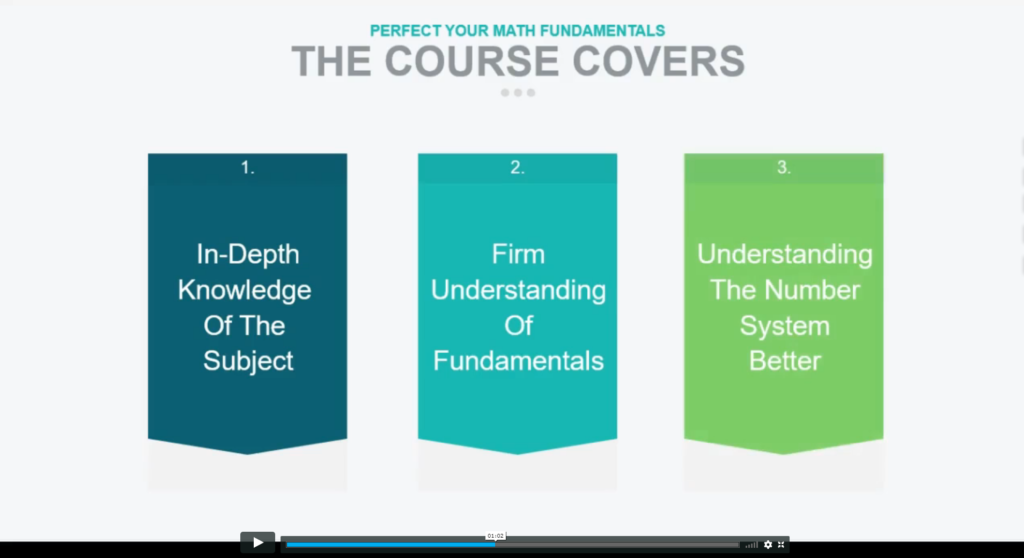
Subtraction: You and two co-workers share a $15 pizza. You and one employee are paying and want to determine how much a third employee owes: $15 - $5 + $5 = $5.
Multiply: You and two colleagues each have $5 for a pizza and you want to know how much pizza you can afford: $5 x 3 = $15.
Division: You and two employees share a $15 pizza for lunch, and everyone wants to pay their share. You would use division to calculate the cost: $15/3 = $5 each.
Read more: Counting Skills: Definition and Examples
Percentage
Percentage is 100 times the whole. strength. For example, you invited a business partner to dinner and the bill was $50 plus $8 in taxes. You want to leave a 20% tip for good service. In this case, it would be $10 based on $50.
Related: How to Calculate a Percentage
Fractions and Decimals
Fractions are part of a whole number, and a decimal is the numeric representation of that fraction. For example, $1 can be divided into quarters (a fraction represented here as 1/4) or 25 cents.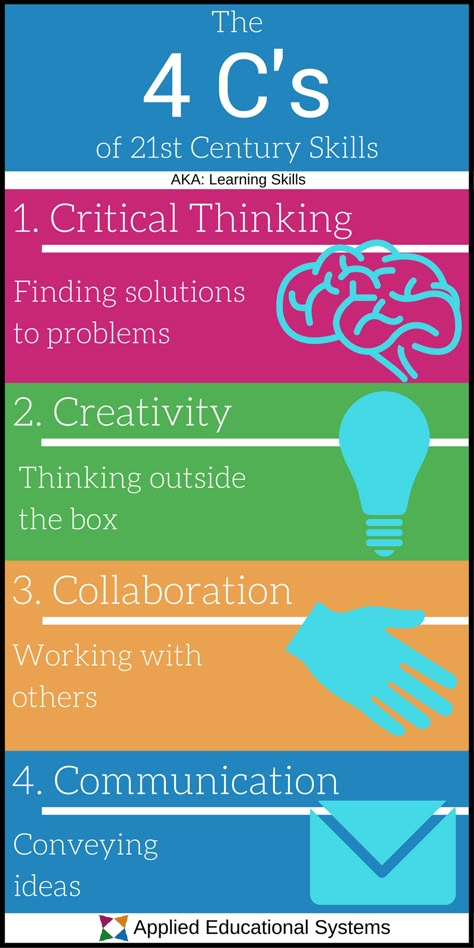 In another example, the box contains 12 widgets, but the customer only wants six, or ½ of the box. The whole package will be 1.0 in decimals and half will be 0.5. Additional basic skills associated with decimals include rounding to the nearest tenth or hundredth and mental estimation of values.
In another example, the box contains 12 widgets, but the customer only wants six, or ½ of the box. The whole package will be 1.0 in decimals and half will be 0.5. Additional basic skills associated with decimals include rounding to the nearest tenth or hundredth and mental estimation of values.
Related: How to divide fractions: tips and tricks to use
Visual representation of data
Often numbers are presented in visual formats. The basic math skill that needs to be mastered is reading and understanding charts and graphs. Being able to read the axes, trend line, and data points will help you gain a deeper understanding of the underlying data. It will also help you make graphs and charts to better illustrate your points.
Unknown solution
Solving an unknown variable is a basic problem in algebra. Algebra is a branch of mathematics in which letters and other symbols are used to represent numbers and quantities in a formula or equation. A variable is a literal character (A, B, etc.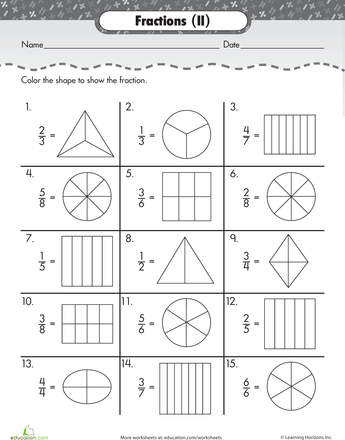 ) that represents a number in an equation. The solution for the unknown can be as simple as B = 20 + 20. The unknown variable (B) is the sum of the two numbers, or 40.
) that represents a number in an equation. The solution for the unknown can be as simple as B = 20 + 20. The unknown variable (B) is the sum of the two numbers, or 40.
For example, Juan needs to earn $600 this month and he makes $20 each time when walking the dog for one of his neighbors. The "unknown variable" Juan wants to solve is the number of dog walks he needs to earn the required amount. With basic algebra skills, Huang would be able to create a simple formula for this equation (20 x Y = 600) and find the unknown variable Y.
Related: 50 careers that use algebra
How to improve your basic math skills
There are four main ways to improve your basic math skills:
are a great way to practice your basic math skills. Often, math workbooks contain instructions and tips for solving problems, as well as answers so you can check your work. If there is a particular topic in math that you find difficult, look for a math textbook that focuses on that math skill.
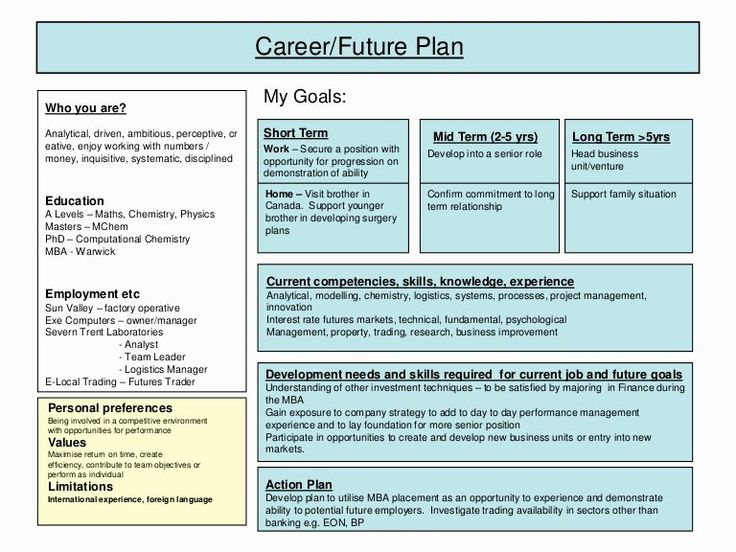
2. Take a lesson
Basic math classes are offered both online and usually at local colleges and study centers and can be extremely helpful in improving your understanding of basic math concepts. . The advantage of math classes is that they provide more detailed instruction and the opportunity to ask questions if you are unsure about a topic.
3. Ask for help
If you know someone who is good at math, ask them for help. Let them know which areas you find difficult and see if they have any advice. Friends, family members and colleagues can provide a new perspective or perhaps explain things in clearer terms than the average instructor.
You can also hire a tutor to give you one-on-one attention in person or online. They can give examples of tasks to help you improve your skills and answer any questions you might have.
4. Practice
The best way to improve your basic math skills is to practice. Constant use of your skills can ensure that you retain your skill. Try not to use a calculator for every problem you face and don't ask someone else to calculate a math problem for you. Take every opportunity to use your basic math skills and they will get stronger over time. What's more, many industries and professions require math testing before being considered for jobs, so it's always a good idea to keep your math skills strong.
Try not to use a calculator for every problem you face and don't ask someone else to calculate a math problem for you. Take every opportunity to use your basic math skills and they will get stronger over time. What's more, many industries and professions require math testing before being considered for jobs, so it's always a good idea to keep your math skills strong.
Basic math skills in the workplace
Here are just a few examples of how you can use basic math skills in the workplace:
Calculating taxes
Knowing how to calculate taxes is vital to running a financially sound business. You need to know how to calculate sales tax, income tax, property tax and more. While there are tools to help you calculate various taxes, knowing how to get these numbers will help you better understand your financial situation and avoid financial mistakes.
Giving presentations
Business leaders often make decisions based on data. If you are making a presentation, you should be able to back up your statements with facts and figures. Knowing how to create various graphs, charts, and charts to explain and present your numerical results, as well as how to understand them in front of other people, is a common requirement in the workplace.
Knowing how to create various graphs, charts, and charts to explain and present your numerical results, as well as how to understand them in front of other people, is a common requirement in the workplace.
Read more: 6 types of presentations to use in the workplace
Payroll and allowances
As an individual, if your salary is $60,000 a year, you'll want to know how much your weekly salary will be. Also, if your boss gives you a 10% raise, you'll want to know how much extra income that is. Being able to count the numbers that matter most to you will help you make better decisions about where to work and how much you can afford to spend on your personal life.
Related: How to Calculate Gross Wages with 9 Examples0003
Determining time estimates
You can use your basic math skills to plan tasks. For example, you have a project that consists of 10 equal parts. You have already completed three parts in nine days. When your manager asks how long the rest of the project will take, you can use basic math skills to give them an estimate of three days per task, or 18 work days in total.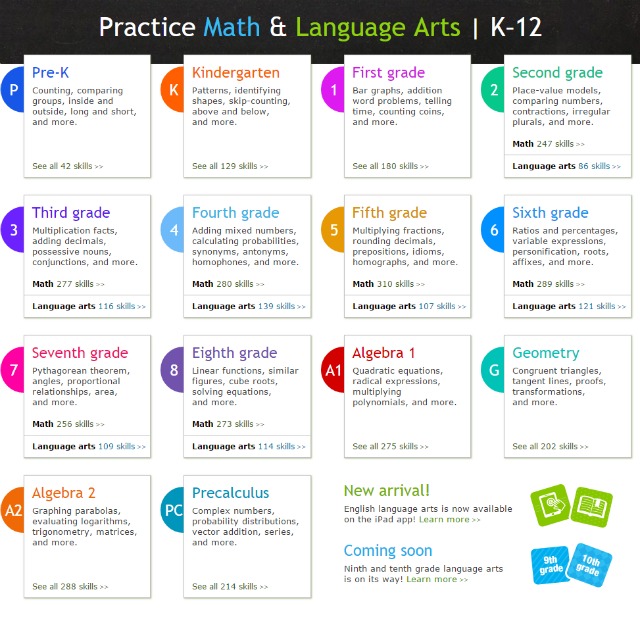
Read more: 6 ways to optimize your daily routine
How to highlight basic math skills
Here's how to highlight your math skills in a job application:
On your resume
To highlight your basic math skills on your resume, give real-life examples. For example, if you're a cashier, instead of saying you're good at adding and subtracting, you could say:
-
Able to quickly figure out the change a customer owes in my head.
You can also refer to your basic math skills in your job description. For example, a marketer might write:
-
Created clear data visualizations to demonstrate the effectiveness of various marketing campaigns.
The goal is to emphasize your use of basic math skills, not to point them out. You can do this in any section, for example, work experience, special skills, or even in a cover letter.
At a job interview
During an interview, you may be asked to demonstrate some of your basic math skills.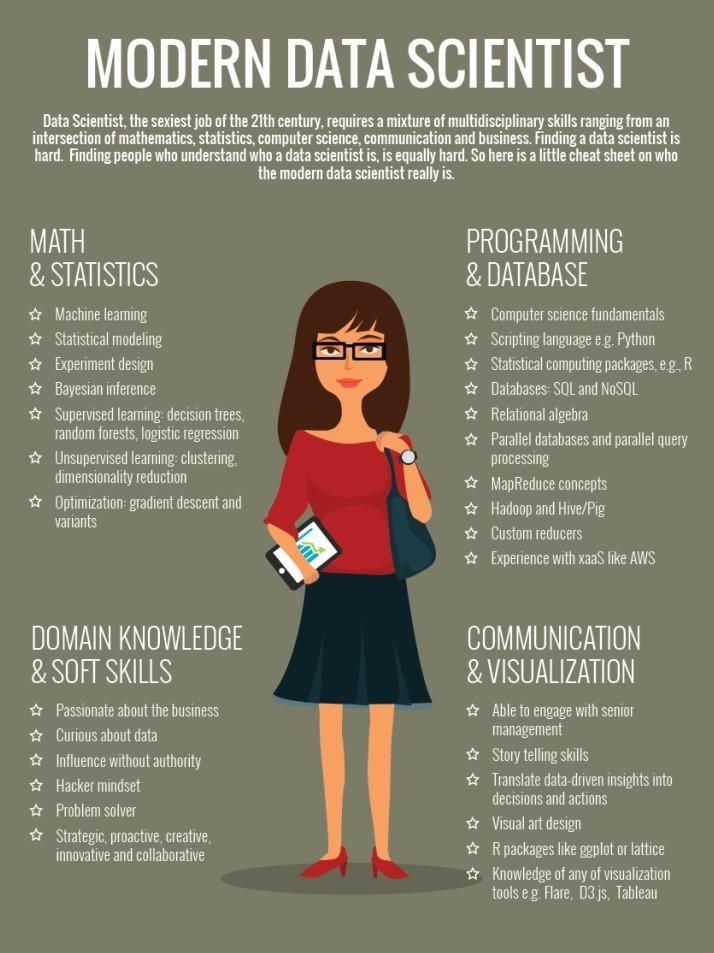

 Or kids who have trouble remembering math facts and step-by-step procedures.
Or kids who have trouble remembering math facts and step-by-step procedures.